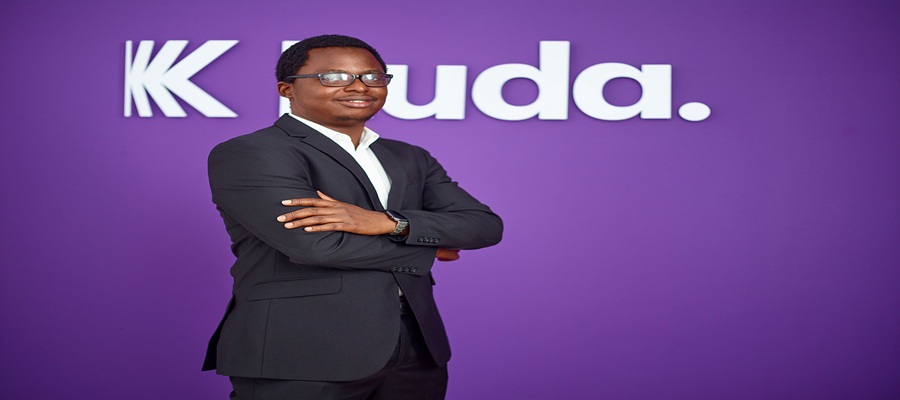E-Financial
NIBSS National Payment Stack to Transform Nigerian Instant Payments

Nigeria Inter-Bank Settlement System (NIBSS) has launched the National Payment Stack (NPS), a payment infrastructure aimed at redefining digital payments in Africa and building on the introduction of NIBSS Instant Payments.

The NPS which is ISO 20022 compliant, also aims to transform quick and seamless payments across the nation.
NIBSS Instant Payments (NIP), Africa’s first real-time account-based digital payment system, was established 14 years ago.
The NPS continues this heritage.
Mr. Premier Oiwoh, managing director of NIBSS, stated during the launch in Lagos that the NPS was designed to get Nigeria ready for the digital payment future.
It’s a shift toward the future. We set the groundwork for Nigeria’s financial future with NPS, not simply another rapid payment system,” Oiwoh stated.
The NIBSS MD lists the following as some of the new payment platform’s features:
Instant settlements and real-time transactions
Using ISO 20022 for advanced payment message
Single and bulk payments on a single rail
A more effective mechanism for managing disputes
KYC validation via TIN, RC Number, or BVN
Direct Debit and Request-to-Pay features
Cross-border potential and multi-currency preparedness
Sandbox-enabled integration for partners in as little as 48 hours
Enhanced capacity for risk grading and fraud management
The strategic goal of developing the NPS, according to Oiwoh, is to promote innovation in digital payments, increase financial inclusion in the ecosystem, and boost government revenue collection, tax payments, and social intervention payments.
He continued by saying that an upgraded payment rail, like the NPS, is necessary to stimulate and get Nigeria ready for the future given its goal of creating a $1 trillion economy in eight years.
“Our goal of providing Nigeria and Africa with a platform that not only satisfies international standards but also takes into account our particular payment realities is reflected in the NIBSS Payment Stack.
“NPS is built to deliver smarter, faster, and more transparent payment experiences for everyone,” he stated, referring to Request-to-Pay, real-time settlements, automatic reconciliation, and improved dispute management.
Speaking at the ceremony, Mr. Philip Ikeazor, chairman of the NIBSS Board and Deputy Governor, Financial System Stability at the Central Bank of Nigeria, called the NPS an important and major turning point for the Nigerian financial ecosystem and NIBSS.
Ikeazor, who was accompanied by Mr. Musa Jimoh, the CBN’s Director of Payment System Policy, stated that the NPS establishes the groundwork for increased inclusivity, increased trust, and the upcoming wave of innovation in the digital payment space.
Speaking as well, Mr. Babajide Sanwoolu, governor of Lagos State, praised NIBSS for its capacity to unite diverse stakeholders in order to develop the domestic infrastructure.
This type of strategic relationship evolves to what Africa and Nigeria require to thrive in our constantly changing digital environment.
The governor, who was represented by Mr. Samuel Egube, deputy chief of staff, stated, “Lagos, the commercial hub of Nigeria, is thrilled to support innovations that make doing business easier, safer, more transparent, and more inclusive.”
We are expected to be aware that NIBSS, which was established in 1993 to offer the infrastructure necessary for smooth payments, settlements, and identity verification, is owned by the CBN and the nation’s deposit money banks.
With significant projects like the introduction of AfriGO, Nigeria’s national domestic card program, and the recent introduction of quick settlement on point-of-sale transactions for AfriGO cardholders, the organization has persisted in pushing the envelope of what is possible.
By facilitating richer data, enhanced transparency, and end-to-end traceability throughout the financial ecosystem, NPS, which was founded with interoperability at its core, promotes economic inclusion and payment system modernization.
Mr. Musa Jimoh, Director of Payment System Policy at the Central Bank of Nigeria, skillfully represented Chief Host Mr. Philip Ikeazor, Deputy Governor, Financial System Stability at the Central Bank of Nigeria and Chairman of the NIBSS Board, at the event. He gave a heartfelt and captivating welcome speech.
He welcomed the distinguished visitors with grace and urged them to unwind and take in the evening, which promised to be a display of creativity, teamwork, and cultural diversity. He continued by highlighting the importance of the National Payment Stack (NPS), characterising it as a turning point for Nigeria’s financial ecosystem as well as NIBSS; it establishes the groundwork for increased inclusion, deeper trust, and the upcoming wave of innovation in the digital payment space.
Lagos State Executive Governor Mr. Babajide Olusola Sanwo-Olu, ably represented by Mr. Samuel Egube, Deputy Chief of Staff, graced the launch event with live demonstrations of the National Payment Stack (NPS) functionalities and a goodwill message reaffirming the government’s commitment to fostering innovation in the digital payment space.
The CEO and Director General of the National identification Management Commission (NIMC), Abisoye Coker-Odusote, was also present and highlighted the critical role that digital identification plays in promoting national development and financial inclusion.
The AfricaNenda Foundation’s CEO, Dr. Robert Ochola, gave a powerful policy keynote address at the event. Jacqueline Jumah, AfricaNenda’s Director of Advocacy & Capacity Development, spoke on his behalf.
The future of digital payments in Nigeria and throughout Africa was examined in her speech and subsequent industry-led conversations.
Senior executives, directors, and deputy governors from more than 20 African central banks, national switches, and the AfricaNenda Foundation were welcomed to the occasion.
They are now in Nigeria for a five-day peer learning visit organized by NIBSS. Their presence demonstrated how important regional cooperation is to the development of inclusive, interoperable payment systems.
The National Payment Stack solidifies Nigeria’s position as a continental leader in promoting innovation, security, and interoperability as the global payment ecosystem changes.
E-Financial
FBNQuest Merchant Bank Rebrands as Quest Merchant Bank

FBNQuest Merchant Bank Limited has completed a change of name and will now operate as Quest Merchant Bank Limited, following the receipt of all required corporate and regulatory approvals.

The name change does not affect the Bank’s legal or going-concern status, management, or the nature of its business. Quest Merchant Bank Limited remains a duly licensed merchant bank, regulated by the Central Bank of Nigeria (CBN) and the Securities and Exchange Commission (SEC), and continues to deliver its full suite of merchant banking, advisory, and capital markets services to clients.
Commenting on the development, the Ag. Managing Director/CEO, Afolabi Olorode, stated: “This name change represents a pivotal milestone in the rich history of the Bank and a deliberate strategic repositioning that reflects our resilience, strong track record, and long-term growth ambitions. While our name has evolved, our commitment to our clients, stakeholders, and regulators remains unwavering.”
As part of the transition, the Bank is updating its branding, communications, and digital platforms to reflect the new name. During this period, some legacy references may remain visible across select touchpoints as updates are progressively completed.
All existing contracts, client relationships, and obligations of the Bank remain valid, binding, and fully enforceable following the name change.
E-Financial
UBA launches instant digital platform for seamless account opening across Africa, diaspora

United Bank for Africa (UBA) Plc, Africa’s leading financial institution, on Tuesday unveiled a groundbreaking instant account opening platform, revolutionising banking access for millions across the continent and diaspora communities worldwide.

UBA
The fully digital innovation, accessible at ubagroup.com, empowers prospective customers to complete account onboarding online in minutes, bypassing paperwork, branch visits, and lengthy processes that have long hindered financial inclusion. Supporting Naira and Diaspora accounts with multi-language options, the platform operates seamlessly on computers, tablets, and smartphones, catering to UBA’s diverse pan-African footprint spanning 20 countries, the UK, US, France, and UAE.
Shamsideen Fashola, Group Head of Retail and Digital Banking, described the launch as a pivotal step in democratising finance. “At UBA, we are committed to redefining the customer experience through innovation and simplicity,” Fashola said. “This fully digital solution underscores our belief that banking should be accessible, secure, and truly borderless.”
The seven-step process is intuitive: customers select “Open a Savings Account,” input their Bank Verification Number (BVN), undergo facial verification, confirm an OTP, update details, upload documents, add a digital signature, and receive an instant account number. This bridges traditional banking rigour with fintech speed, incorporating digital KYC while upholding stringent security.
Built with compliance at its core, the platform adheres to Nigeria’s Data Protection Act (NDPA) and Europe’s GDPR, safeguarding user privacy amid cross-border operations. Unlike conventional methods requiring physical biometrics, it enables immediate enrolment in UBA’s digital channels, blending convenience with regulatory depth.
Alero Ladipo, Group Head of Brand, Marketing, and Corporate Communications, highlighted customer-centric design. “Today’s customers expect speed, convenience, and compliance without compromise,” Ladipo stated. “We have blended industry-leading digital onboarding with robust standards for a seamless experience matching global best practices.”
The move reinforces UBA’s dominance in technology-driven inclusion, serving over 50 million customers with 30,000 employees and pioneering retail, commercial, and institutional services. Analysts view it as a strategic edge over fintech rivals, accelerating Africa’s digital economy amid rising diaspora remittances and intra-continental trade.
As Nigeria and Africa push financial digitisation, UBA’s platform positions the bank to capture untapped markets, fostering economic growth through barrier-free banking
E-Financial
Kuda MFB Secures National Microfinance Banking Licence, Sets Stage for Nationwide Growth

Kuda Microfinance Bank (Kuda MFB) has received a license from the Central Bank of Nigeria (CBN) to operate as a National Microfinance Bank, which means that it can now have a physical presence across Nigeria.

Musty Mustapha, MD/CEO of Kuda MFB
With the Unit Microfinance Bank licence it held until December 2025, Kuda MFB’s physical operations were limited to a specific location. The national licence removes those geographic restrictions, allowing the bank to open customer experience centres in multiple parts of the country. It also regularises Kuda MFB’s licensing status in line with the Central Bank’s framework for microfinance banks.
According to the bank, the national licence is about regulatory alignment and operational flexibility rather than a shift away from its digital-first model, so it will continue to lead with digital banking services, offering Nigerians the convenience of making transfers and payments, saving, and accessing instant credit through the Kuda app.
Musty Mustapha, MD/CEO of Kuda MFB, said, “Securing a national microfinance banking licence is an important step for us as a regulated institution. It strengthens our relationship with the Central Bank and affirms our commitment to operating at the highest standards of compliance as we scale. While we remain digital at our core, this licence gives us the flexibility to create more physical touchpoints where customers want in-person support or engagement, allowing us to serve Nigerians across the country in whichever ways are most convenient for them.”
Subject to regulatory approval, Kuda MFB plans to open more experience centres designed for customer support and community engagement, in the style of its existing experience centre in Yaba, Lagos, where customers and the general public can speak directly with the Kuda team to get help and learn about the microfinance bank’s products and services.
Kuda MFB’s national licence does not change its existing product offerings or transaction capabilities, but it provides the regulatory backing for a nationwide presence.

 Telecom2 days ago
Telecom2 days agoPolice Bust ₦7.7bn Telecom Hack Gang, Seize 400 Laptops in Massive Fraud Swoop

 E-Financial3 days ago
E-Financial3 days agoPayPal Goes Live in Nigeria through Paga

 Broadcasting3 days ago
Broadcasting3 days agoNITDA, NBC Explore Strategic Collaboration on Digital Transformation, Media Regulation

 General News2 days ago
General News2 days agoNaira Smashes Through ₦1,400 Barrier in Official FX Rally

 General News2 days ago
General News2 days agoNCC Slaps ₦250,000 Fee on Trial Licences to Spur Telecom Innovation

 General News3 days ago
General News3 days agoFacebook Powers Connection, Creativity at African Creators Summit 2026

 E-Business3 days ago
E-Business3 days agoGold Hits Record $5,110/Ounce Amid Trump Tariff Threats, Geopolitical Fears

 Telecom3 days ago
Telecom3 days agoTikTok, Instagram Blamed in US Youth Suicide Lawsuit

























